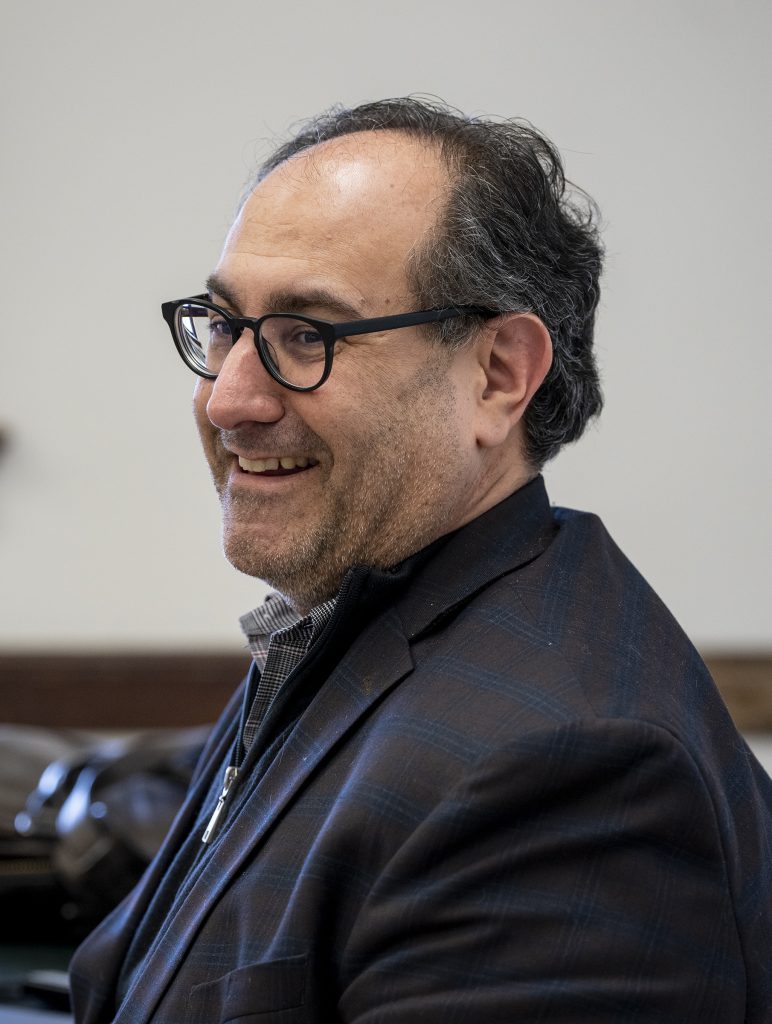Darren Ranco – Mitchell Center Leadership Council

Professor of Anthropology
Darren Ranco is a professor of anthropology, chair of Native American Programs, and coordinator of Native American research. Ranco has been at UMaine since 2009, and has a joint faculty appointment at the Senator George J. Mitchell Center for Sustainability Solutions.
Ranco’s research focuses on the way Indigenous communities in the United States resist the destruction of environmental and cultural resources through traditional knowledge systems, such as Indigenous science and diplomacies. Ranco also studies how existing social systems rooted in colonial contexts expose Indigenous people to outsized environmental risk. Ranco is dedicated to exploring how better research relationships can be formed between universities, Native and non-Native researchers, and Indigenous communities. His work has been instrumental in slowing the spread of invasive emerald ash borer, providing coastal access for Tribal shellfish harvesters, supporting climate adaptation for Maine’s Tribes and more.
As a citizen of the Penobscot Nation, Ranco always viewed research and sustainability as interconnected. Sustainability serves as a framework for the research methodologies that he uses, and is closely related to Indigenous research methods. Ranco sees interdisciplinary research with an eye towards public engagement and relevance as one of UMaine’s major strengths, and the culture of collaboration at the Mitchell Center as one of the most special things about UMaine. He joined the Mitchell Center Leadership Council to bolster that work, while continuing to elevate the voices of Tribal Nations in research.
Ranco’s commitment to sustainability and connecting to real world problems is also central to his teaching. He teaches classes on environmental justice and tribal justice, research ethics, Indigenous intellectual properties rights and more. He is also a founding member of Wabanaki Youth in Science, which started at UMaine, and still serves as an ex-officio board member. He is a co-principal investigator for Maine-eDNA and Systems Approaches to Understanding and Navigating the New Arctic (SAUNNA). He works with Maine EPSCoR to expand the process of professional development for teaching faculty how to engage with Indigenous science in classes. He took a sabbatical from 2024-2025 to serve as support staff for the Wabanaki Commission on Land and Stewardship, which works towards land returns and rematriation in the state of Maine. He is also a former board member at the Abbe Museum, a current board member of the Land Peace Foundation, Wabanaki Public Health and Wellness, Maine Historical Society, and Maine Chapter of The Nature Conservancy.
